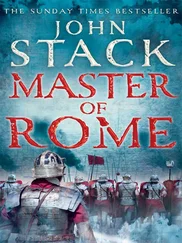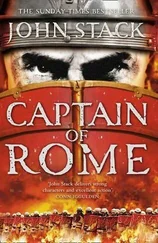At the forefront of Megellus’s thoughts were the vital questions of how long the legions could now hold out in hostile territory, for without resupply they would eventually have to turn back – and how far they would need to withdraw. On the first question, only time would tell. The second? If the legions did finally withdraw, the Carthaginians would pursue them, of that there was no doubt, the enemy gaining strength and confidence as the legions bled those same resources into the sand. With a dread feeling Megellus answered this second question in his mind. If the tables were turned he knew what he would do. He would pursue the enemy to the bitter end. The Punici would employ the same determination they had shown over the previous nine days. The legions would be pursued past the territorial dividing line of the last campaign. They would be pursued past their winter camp and, finally, if the Carthaginians were not checked, the Second and Ninth would be pushed into the sea itself.
Atticus crouched down and scooped a handful of seawater from the shallow surf, splashing the water onto his face in an effort to clear the exhaustion from his mind. One hundred yards away the Aquila rested gently against her anchor line, the setting sun reflected in the wave tops thrown up as the shifting current broke against her hull. Atticus stood up and turned his back on the shoreline, walking slowly up the gentle slope of the beach at Fiumicino, arching his back as he went to stretch his tired muscles. He glanced over his shoulder one last time to see the two crewmen who had rowed him ashore already asleep in the bottom of the small skiff. After another sixteen-hour day training raw recruits, Atticus couldn’t begrudge them the rest, and he silently cursed the late hour of the summons from the camp prefect which kept him from his own cabin.
Atticus had asked to see Tuditanus five days before, the same day the training schedules had been issued to the galleys, the Aquila amongst them, tasked with training the new sailing crews arriving daily at Fiumicino. Atticus had instantly come ashore to see the camp prefect but his request for a meeting had been denied, as had every repeated request since. Until now.
Walking up the beach, Atticus was once more struck with awe by the activity surrounding him. For the past week he had watched as barge after barge, marching column after marching column arrived at the coastal village, to fill the beach with raw materials and the tented city with sailors and soldiers. Fiumicino was now home to some ten thousand people, half of them craftsmen, who laboured every daylight hour to turn rough raw timber into graceful spars and frames for the developing fleet, and so now, as Atticus crested the dunes at the head of the beach, the skeletal frames of twenty triremes stood tall on the sand above the high-water mark.
The camp prefect’s tented quarters stood apart from the main camp, enclosed within a palisade on a patch of raised ground overlooking the village of Fiumicino. Atticus identified himself at the gate before being ushered in, his arrival expected by the guards. He ducked under the awning of the tent and stood to attention, his eyes rapidly adjusting to the gloom of the interior. Tuditanus sat silently behind his desk poring over a series of scrolls, murmuring quietly to himself before he raised his head to acknowledge Atticus. A former manipular centurion and veteran of the Pyrrhic War, Tuditanus now held the highest rank an equestrian could achieve in the legions, and his attitude was one of a man completely at ease with his station in life.
He held Atticus’s gaze for a full minute before standing up and circling around to the front of his desk.
‘You asked to see me, Captain Perennis?’ Tuditanus said impatiently.
Atticus instantly bit back the words that rushed to his lips. ‘Yes, Camp Prefect,’ he answered evenly. ‘It’s about the training schedule issued to the galleys.’
‘Go on…’ Tuditanus said slowly, irritation in his voice.
‘I believe the approach ordered is wrong,’ Atticus said in a rush, his course set. ‘The new crews can’t be trained to ram in the time we have. We need to teach the crews how to steer a galley for boarding and make that our priority.’
‘You believe a Roman sailor cannot be taught how to ram?’
‘No, Camp Prefect, not in the time we have.’
‘The time we have?’
‘The time the legions in Sicily have.’
Tuditanus nodded, although Atticus could clearly see it was not in agreement.
‘You’re Greek, are you not, Captain?’
‘Yes, but I don’t see—’
‘And you believe the orders of your Roman commander are ill-advised?’ Tuditanus asked, cutting Atticus short.
Once again Atticus held his words, anger flaring in him as he was confronted anew by Roman arrogance. He breathed deeply, his mind searching for a way to persuade the camp prefect that the orders were wrong without saying as much.
‘I know Lentulus chose a traditional design to speed up construction because his apprentices and many of the craftsmen have built identical galleys in the past. But I also know that the Carthaginian galleys are stronger than our own and their crews more skilled – and we can’t be guaranteed victory if we rely on the ram.’
Tuditanus circled and stood once more behind his desk, bunching his fists as he leaned forward.
‘You Greeks are all the same. You underestimate Rome, Perennis, with the same arrogance your ancestors did.’
Atticus made to protest again but Tuditanus silenced him with a raised hand. ‘Now let me be very clear on this,’ he continued, his gaze piercing, ‘the sailing crews will be trained how to ram and you will make that your priority. If I hear that you are doing otherwise, I’ll have you and your crew flogged before the entire camp. Now get out of my sight.’
Atticus saluted and turned on his heel, the acid rising in his stomach as he fought to suppress his anger. Minutes later he was back at the water’s edge, kicking the hull of the skiff to waken the two crewmen who were instantly at the oars, their captain’s dark mood quickening their oar-strokes as they skulled through the darkness.
Scipio crested the windblown dune at the head of the beach south of Fiumicino and paused, allowing his stallion to breathe easy after the twelve-mile gallop from the city. His guard detail of four mounted praetoriani halted ten paces behind him. The senior consul had left his town house in the half-light an hour before dawn, and now, forty minutes later, it was as if he had travelled to the shore of a distant land. The southern beach before him was deserted and seemed unworldly after the enclosed, cramped streets of the capital and the busy northern trade road, the Via Aurelia, five miles inland. Scipio breathed deeply, the cleansing, salt-laden onshore breeze fresh in his face.
The final decisions on the fleet had been made over a week before, and since then he had been working tirelessly on the organizational elements of the plan, his position as fleet commander giving him overall responsibility for the task. With the full support and power of the Senate behind him, Scipio had issued a number of sweeping decrees which immeasurably speeded up the process. Entire crews were drafted from the trading populace of Ostia. An army of slaves had been commandeered from the surrounding estates and towns to provide labour. Their combined strength would be used to construct the fleet and then it would be harnessed to propel the ships through the water as each slave would be sent to man the oars of the very ships they built. Fleets of transport barges had also been requisitioned and the vital raw materials they carried seized by order of the Senate. The decrees had been brutal. Scipio had no doubt that many traders had already lost their livelihood as a result of the enforced orders and yet he felt no remorse. Rome was threatened, therefore Rome must react. If individuals had to be sacrificed for the greater good then so be it. History would remember men like Scipio and the glory of Rome. No one would remember the casualties.
Читать дальше
Конец ознакомительного отрывка
Купить книгу











